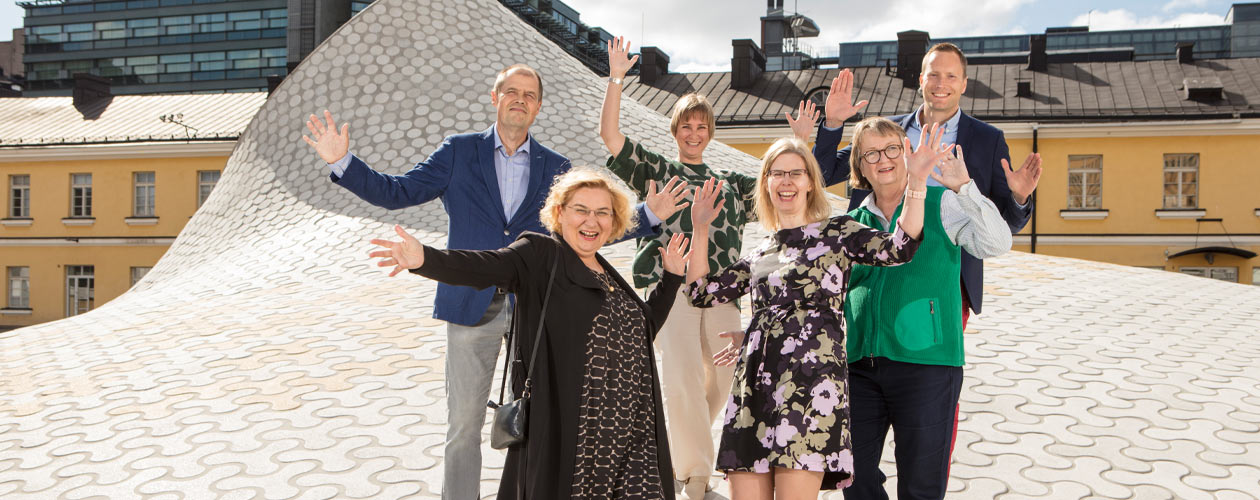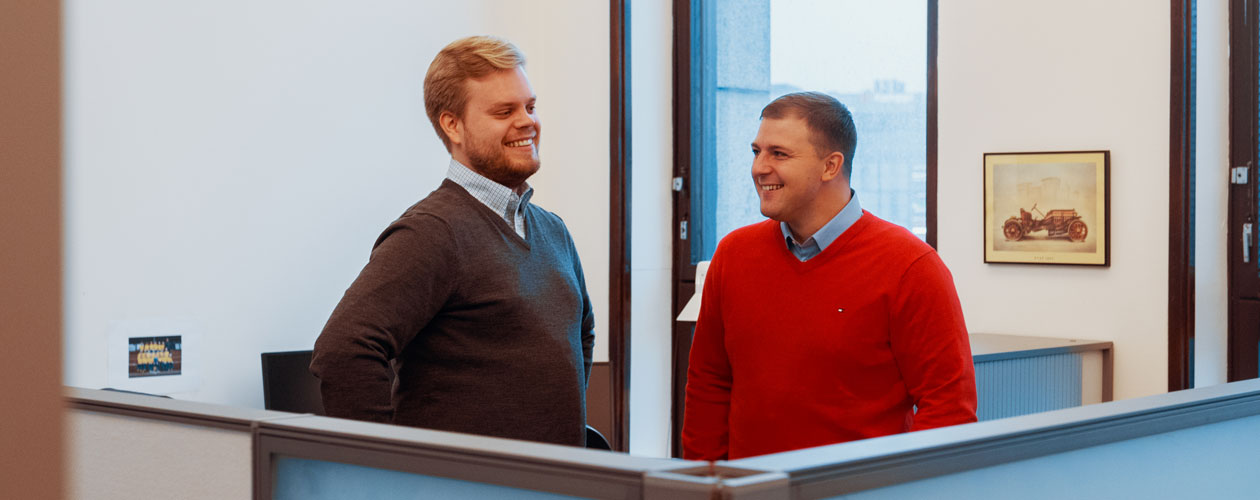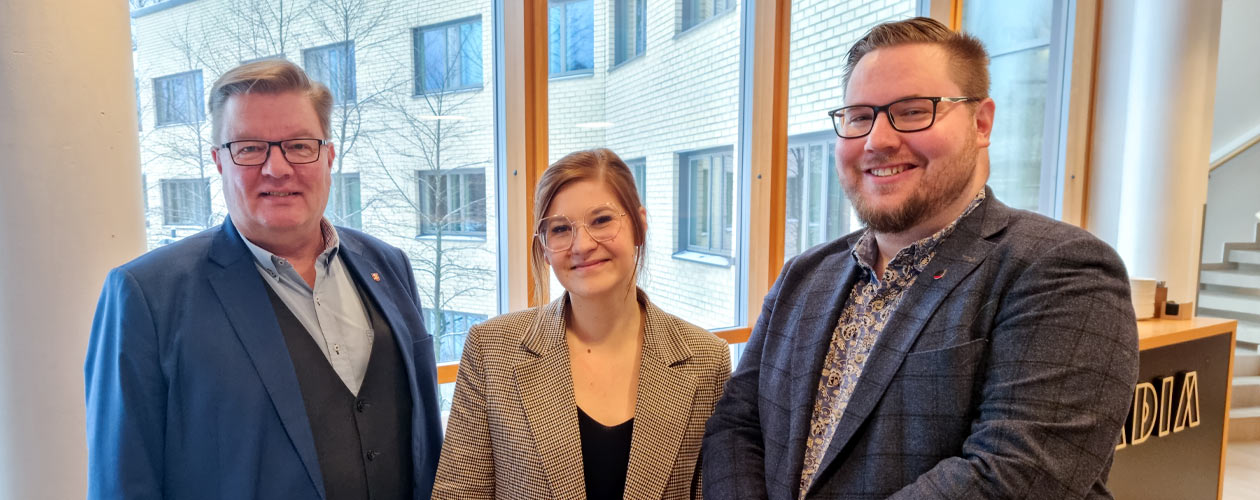Clean and sustainable
Environmental sustainability has played a major role in the cleaning industry for a long time. One of the goals of Hansel’s dynamic procurement system for cleaning services was to emphasise the significance of social responsibility. The contractual supplier Palmia has already employed three persons through the employment clause.
Extensive consideration is given to the different aspects of sustainability in all Hansel’s joint procurement projects. In addition to environmental and financial sustainability, the dynamic purchasing system (DPS) for cleaning services pays particular attention to social responsibility. Among other things, the contractual supplier undertakes to pay attention to promoting the employment of people in a weaker labour market position.
The Hansel DPS contains an employment clause which obliges the contractual supplier to employ a person in a disadvantaged labour market position for as long as possible, but at least for six months. The supplier must employ a new person each time a monetary limit specified for contract sales is reached. Of the contractual suppliers, Palmia was the first to reach the threshold.
“We deem the social responsibility aspect to be essential. Our own sustainability targets also guide us to take social responsibility into account, both during the employment relationship and during the recruitment process. The employment clause complements these targets well,” says Susanna Immonen, Business Unit Director at Palmia Oy.
In the industry plagued by staff shortages, all recruitment channels are widely used. In addition to direct application processes, Palmia recruits staff through labour market training and in-house referrals, for example. Palmia has employed three persons through the employment clause in the cleaning services DPS in less than a year. The difference with other recruitment methods lies mainly in the background of the persons being employed.
“There are hardly any cleaning staff looking for work at the moment because the demand for labour is so high. Many of the people who are employed by us through the employment clause lack any experience in the industry and do not necessarily even speak Finnish. In such a case, induction takes more time, but we have good processes in place. To overcome the language barrier, we use pictures and videos, and lead by example,” Immonen explains.
In addition to the general terms and conditions of the Hansel DPS, the customers can further specify requirements in their own minicompetitions. Customers often require previous experience in the cleaning industry or as a supervisor, which is understandable in Immonen’s opinion. However, the requirements should not be excessively strict because of the labour shortage. Immonen has a good tip for defining the level of experience.
“Experience can also be required by stating that the recruited person must start training as soon as the contract period starts, for example. This allows us to offer career paths for those willing to proceed in their career, while ensuring that their skills are at the required level.”
Interest in chemical-free cleaning and other new methods
There are many ways to implement environmental sustainability in cleaning services. For example, it is easy for a cleaner to spot discrepancies in a property such as leaking taps or non-functioning light fixtures.
“Little things make a big difference to the whole. Some of our customers even reward you for reporting a discrepancy,” says Katja Ahtiala, Palmia’s Service Manager.
Palmia pays special attention to reducing the chemical load and uses environmentally friendly products.
“The awareness of customers of environmental issues has increased enormously. Many standard practices are being abandoned in favour of boldly experimenting with new ways of doing things, such as chemical-free cleaning or cleaning floors with a diamond grinding wheel instead of waxing. We like to consider these issues with the customer and help them achieve their own sustainability targets,” says Ahtiala.
Audits ensure good practices and lead to new ideas
Hansel is currently conducting its first sustainability audit in the cleaning services DPS, and all contractual cleaning service suppliers will be audited. The audit was welcomed at Palmia.
In 2022 Hansel’s first sustainability audit was conducted in the cleaning services DPS, and all contractual cleaning service suppliers were audited.
“We were delighted to be able to report what we were already doing. The audit also gave us plenty of new ideas on how we could further improve our operations. The wheel of development started turning right away. The audit was a great thing,” says Immonen.
Hansel’s DPS takes a broad approach to social responsibility. In addition to the promotion of employment, social responsibility ensures that the supplier complies with and promotes legislation on occupational health and safety, industrial safety, working hours and working conditions, as well as collective agreements. Once the basics are in place, you can start building on them. One approach to social responsibility is to look at the existing staff and their wellbeing.
“In future tendering, requirements for staff job satisfaction and how it is measured, training, or even what percentage of the staff are permanent or full-time employees could be set,” Immonen suggests.
Read next: Sustainable solar power
You may also be interested in
Sustainability management
Hansel’s sustainability work has long traditions: it started on some environmental issues in 2006, and more has been done to promote sustainability every year.
Sustainability is managed with information
In the current work on sustainability, the emphasis is quite different from what it used to be: instead of pretty phrases, people want facts, and preferably in numerical or at least structured format.
Occupational healthcare by three municipalities
When needs are reconciled, a joint minicompetition can save time and achieve a better final result.




